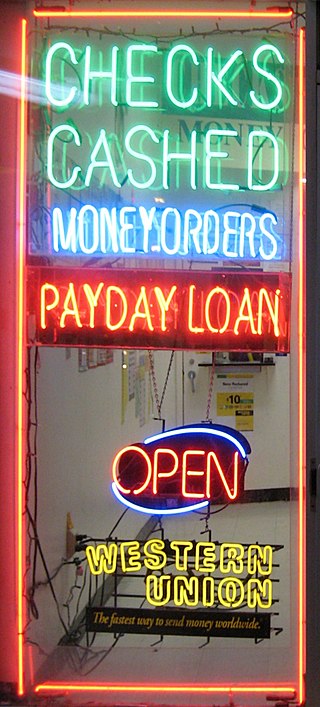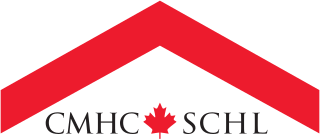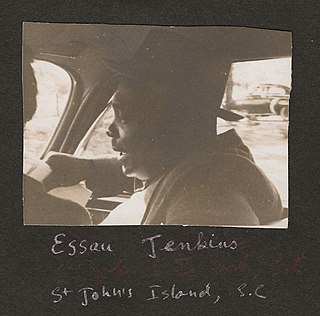The Ithaca HOUR was a local currency used in Ithaca, New York, though it is now no longer in circulation. It was one of the longest-running local currency systems, and inspired other similar systems in Madison, Wisconsin; Santa Barbara, California; Corvallis, Oregon; and a proposed system in the Lehigh Valley, Pennsylvania. One Ithaca HOUR was valued at US$10 and was generally recommended to be used as payment for one hour's work, although the rate is negotiable.
A nonprofit organization (NPO), also known as a nonbusiness entity, nonprofit institution, or simply a nonprofit, is a legal entity organized and operated for a collective, public or social benefit, as opposed to an entity that operates as a business aiming to generate a profit for its owners. A nonprofit organization is subject to the non-distribution constraint: any revenues that exceed expenses must be committed to the organization's purpose, not taken by private parties. Depending on the local laws, charities are regularly organized as non-profits. A host of organizations may be nonprofit, including some political organizations, schools, hospitals, business associations, churches, foundations, social clubs, and consumer cooperatives. Nonprofit entities may seek approval from governments to be tax-exempt, and some may also qualify to receive tax-deductible contributions, but an entity may incorporate as a nonprofit entity without having tax-exempt status.

Microfinance consists of financial services targeting individuals and small businesses who lack access to conventional banking and related services. Microfinance includes microcredit, the provision of small loans to poor clients; savings and checking accounts; microinsurance; and payment systems, among other services. Microfinance services are designed to reach excluded customers, usually poorer population segments, possibly socially marginalized, or geographically more isolated, and to help them become self-sufficient. ID Ghana is an example of a microfinance institution.
A tax credit is a tax incentive which allows certain taxpayers to subtract the amount of the credit they have accrued from the total they owe the state. It may also be a credit granted in recognition of taxes already paid or a form of state "discount" applied in certain cases. Another way to think of a tax credit is as a rebate.

A payday loan is a short-term unsecured loan, often characterized by high interest rates. These loans are typically designed to cover immediate financial needs and are intended to be repaid on the borrower's next payday.
TransUnion LLC is an American consumer credit reporting agency. TransUnion collects and aggregates information on over one billion individual consumers in over thirty countries including "200 million files profiling nearly every credit-active consumer in the United States". Its customers include over 65,000 businesses. Based in Chicago, Illinois, TransUnion's 2014 revenue was US$1.3 billion. It is the smallest of the three largest credit agencies, along with Experian and Equifax.

The Community Reinvestment Act is a United States federal law designed to encourage commercial banks and savings associations to help meet the needs of borrowers in all segments of their communities, including low- and moderate-income neighborhoods. Congress passed the Act in 1977 to reduce discriminatory credit practices against low-income neighborhoods, a practice known as redlining.

Coast Capital Savings Federal Credit Union is a member-owned financial co-operative headquartered in Surrey, British Columbia. It has nearly 600,000 members through its 45-location branch network. In 2023, Coast Capital's net income was at $58.5 million. and has branches located in British Columbia, including Metro Vancouver, Fraser Valley, Okanagan and Vancouver Island regions.

Canada Mortgage and Housing Corporation is Canada's federal crown corporation responsible for administering the National Housing Act, with the mandate to improve housing by living conditions in the country.

Community development bank (CDB) or Community Development Financial Institution (CDFI) is a development bank or credit union that focus on serving people who have been locked out of the traditional financial systems such as the unbanked or underbanked in deprived local communities. They emphasize the long term development of communities and provide loans such as micro-finance or venture capital.
New Community Corporation (NCC) is a not-for-profit community development corporation based in Newark, New Jersey. NCC focuses on community organizing, provision of a variety of community-enhancing services, and resident participation in agency operation. Early prototypes of the community action movement included local housing and service agencies started by the Ford Foundation Gray Areas Initiative and the United States Office of Economic Opportunity, and both federal and private Mobilization for Youth in New York City.

Corporate tax is imposed in the United States at the federal, most state, and some local levels on the income of entities treated for tax purposes as corporations. Since January 1, 2018, the nominal federal corporate tax rate in the United States of America is a flat 21% following the passage of the Tax Cuts and Jobs Act of 2017. State and local taxes and rules vary by jurisdiction, though many are based on federal concepts and definitions. Taxable income may differ from book income both as to timing of income and tax deductions and as to what is taxable. The corporate Alternative Minimum Tax was also eliminated by the 2017 reform, but some states have alternative taxes. Like individuals, corporations must file tax returns every year. They must make quarterly estimated tax payments. Groups of corporations controlled by the same owners may file a consolidated return.
The New Markets Tax Credit (NMTC) Program is a federal financial program in the United States. It aims to stimulate business and real estate investment in low-income communities in the United States via a federal tax credit. The program is administered by the US Treasury Department's Community Development Financial Institutions Fund and allocated by local Community Development Entities (CDEs) across the United States.

Esau Jenkins was a South Carolina African-American Human Rights leader, businessman, local preacher, and community organizer. He was the founder and leader of many organizations and institutions which helped improved the political, educational, housing, health and economic conditions of Sea Island residents.
Self-Help is a national community development financial institution headquartered in Durham, North Carolina. Between the years of 1980-2017, Self-Help reportedly provided over $7 billion in financing to 146,000 families, individuals and businesses. It aims to drive economic development and strengthen communities by providing financial services, lending to individuals, small businesses and nonprofits. It also aims to develop real estate and promote fair financial practices across the nation. Through its credit union network, Self-Help serves 150,000 members in North Carolina, California, Illinois, South Carolina, Virginia, Wisconsin and Florida.

Credit unions in the United States served 100 million members, comprising 43.7% of the economically active population, in 2014. U.S. credit unions are not-for-profit, cooperative, tax-exempt organizations. The clients of the credit unions become partners of the financial institution and their presence focuses in certain neighborhoods because they center their services in one specific community. As of March 2020, the largest American credit union was Navy Federal Credit Union, serving U.S. Department of Defense employees, contractors, and families of servicepeople, with over $125 billion in assets and over 9.1 million members. Total credit union assets in the U.S. reached $1 trillion as of March 2012. Approximately 236,000 people were directly employed by credit unions per data derived from the 2012 National Credit Union Administration (NCUA) Credit Union Directory. As of 2019, there were 5,236 federally insured credit unions with 120.4 million members, and deposits of $1.22 trillion.

Michael S. Barr is an American legal scholar who has been serving as second vice chair of the Federal Reserve for supervision since 2022. From 2009 to 2011, he was assistant secretary of the treasury for financial institutions under President Barack Obama. At the University of Michigan, he has been serving as faculty member since 2001, professor of law since 2006, professor of public policy since 2014.

Spirit of Alaska Federal Credit Union (SoAFCU) is the largest National Credit Union Administration insured credit union based in Fairbanks, Alaska. There are three branches with ATMs in the Fairbanks area. SoAFCU has around ten thousand members. Any person who lives, works, or worships in the Fairbanks North Star Borough is eligible to join the credit union.

The Housing and Urban Development Act of 1968, Pub. L. 90–448, 82 Stat. 476, enacted August 1, 1968, was passed during the Lyndon B. Johnson Administration. The act came on the heels of major riots across cities throughout the U.S. in 1967, the assassination of Civil Rights Leader Martin Luther King Jr. in April 1968, and the publication of the report of the Kerner Commission, which recommended major expansions in public funding and support of urban areas. President Lyndon B. Johnson referred to the legislation as one of the most significant laws ever passed in the U.S., due to its scale and ambition. The act's declared intention was constructing or rehabilitating 26 million housing units, 6 million of these for low- and moderate-income families, over the next 10 years.
Neighborhood Trust Federal Credit Union is a community development financial institution serving low-income residents in the New York City neighborhoods of Washington Heights, Inwood, Hamilton Heights, and West Harlem. The credit union’s non-profit parent organization, Neighborhood Trust Financial Partners, works with a wide network of community-based organizations to provide financial literacy training to low-income adults throughout New York City.









